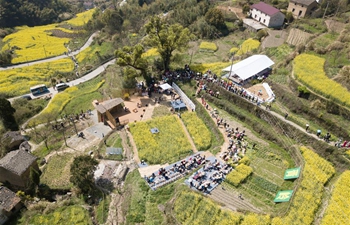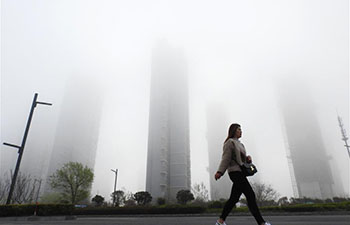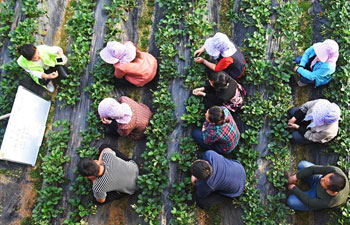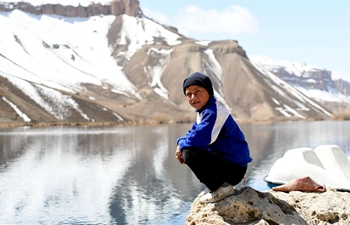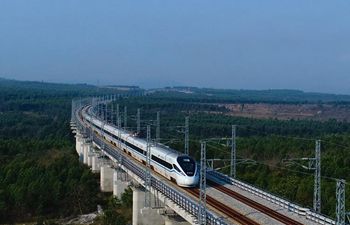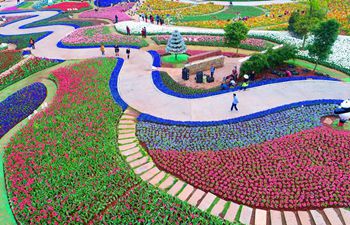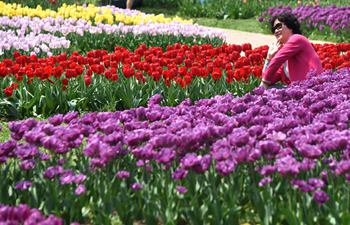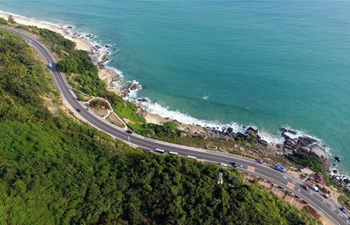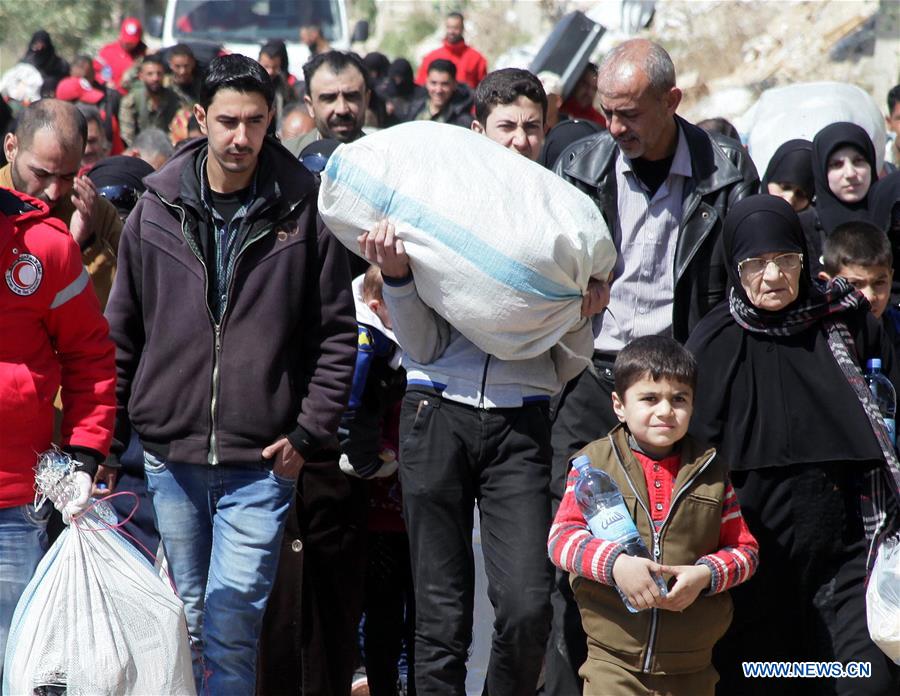 ?
?Syrians evacuate from rebel-held areas in Eastern Ghouta, countryside of the capital Damascus, March 31, 2018. The evacuation of the rebels and their families as well as other civilians from Syria's Eastern Ghouta has seen so far the departure of 188,000 people in March. (Xinhua/Ammar Safarjalani)
DAMASCUS, March 31 (Xinhua) -- The evacuation of the rebels and their families as well as other civilians from Syria's Eastern Ghouta has seen so far the departure of 188,000 people in March.
The evacuation of people in Eastern Ghouta is split into two categories, the evacuation of rebels and their families toward rebel-held areas in the northwestern province of Idlib, and the evacuation of civilians from Eastern Ghouta toward government-controlled areas in Damascus.
State news agency SANA said on Saturday that as many as 38,000 of rebels and their families have left central towns of Eastern Ghouta, namely Jobar, Zamalka, Ayn Tarma and Arbeen since the evacuation began last Saturday toward rebel-held areas in Idlib.
The rebels reject to reconcile with the government or to live under its rule.
The process is still ongoing, and the latest batch left on Friday evening with 6,276 people, including 1,968 rebels leaving by 129 buses.
On the other hand, over 150,000 civilians have evacuated their areas in Eastern Ghouta since mid-March to government-controlled areas, according to SANA.
Those civilians have been hosted in shelters on the outskirts of Eastern Ghouta, amid assurances that they will return home when the situation in Eastern Ghouta entirely settles.
While the evacuation of rebels and their families from the central towns of Eastern Ghouta is ongoing, the district of Douma in the northern side of Eastern Ghouta is yet to see similar deal achieved for the evacuation of the Islam Army rebels from that area.
Still, SANA said on Friday that a deal for the evacuation of Islam Army could be reached soon amid ongoing negotiations through the Russians.
But some thorny issues have been delaying the conclusion of such an agreement, reportedly about the destination of the Islam Army.
But this group, the most powerful in Eastern Ghouta, stressed that it rejects what it described as the "forceful displacement" of the people of Eastern Ghouta.
If the deal is reached in Douma, the entire Eastern Ghouta will be free of rebels, and that is a major boost to the security of the capital, as that region was the last threat to Damascus after the army secured major areas in its surroundings.
Eastern Ghouta, a 105-square-km agricultural region consisting of several towns and farmlands, poses the last threat to the capital due to its proximity to government-controlled neighborhoods east of Damascus and ongoing mortar attacks that target residential areas in the capital, pushing people over the edge.
Four major rebel groups are currently positioned inside Eastern Ghouta, namely the Islam Army, Failaq al-Rahman, Ahrar al-Sham, and the Levant Liberation Committee, known as the al-Qaida-linked Nusra Front.





